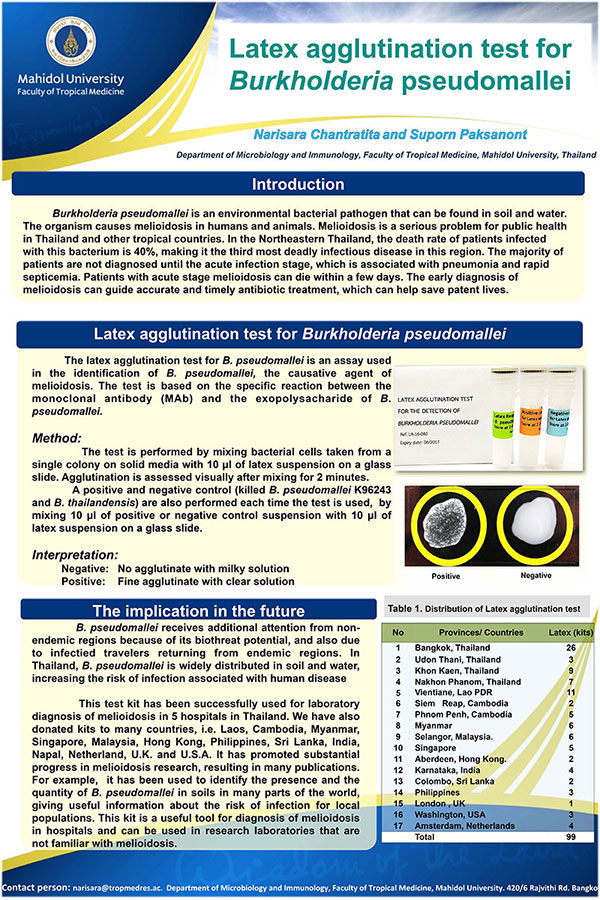Melioidosis pathogenesis
Understanding the factors behind such high mortality of Melioidosis has been a particular focus of the Faculty of Tropical Medicine researchers for many years. Such efforts have been recognized by the research from Associate Professor Dr. Narisara Chantratita from the Department of Microbiology and Immunology, in a significant way this year with the award of a 5-year, multi-million dollar grant from the US National Institutes of Health /NIAID to to fund a large-scale study of the immune response to melioidosis infection. Prior to this, her team had developed the latex agglutination test for Burkholderia pseudomallei, the causative agent of melioidosis. The test is based on the specific reaction between the monoclonal antibody (MAb) and the exopolysacharide of B. pseudomallei. Currently, her project, entitled “Determinants of outcome and recurrent infection in melioidosis” is using this funding to create a major research consortium made up of both Thai and international melioidosis investigators working with patient cohorts recruited from hospitals across northeast Thailand. The goal is create a multi-center, longitudinal cohort study that can generate a massive clinical dataset of patient immune response as well as a biorepository of samples for further analysis. This study will yield a wealth of data that can be probed to answer questions about clinical issues, host factors, or bacterial characteristics. A key aspect of the project is that while a large number of clinical studies have been conducted on melioidosis, very little is known about the host inflammatory response in melioidosis or biological determinants of outcome. Thus, this study will address the need to gain a deeper understanding of the host response in melioidosis in order to identify new therapeutic targets and improve outcomes.
